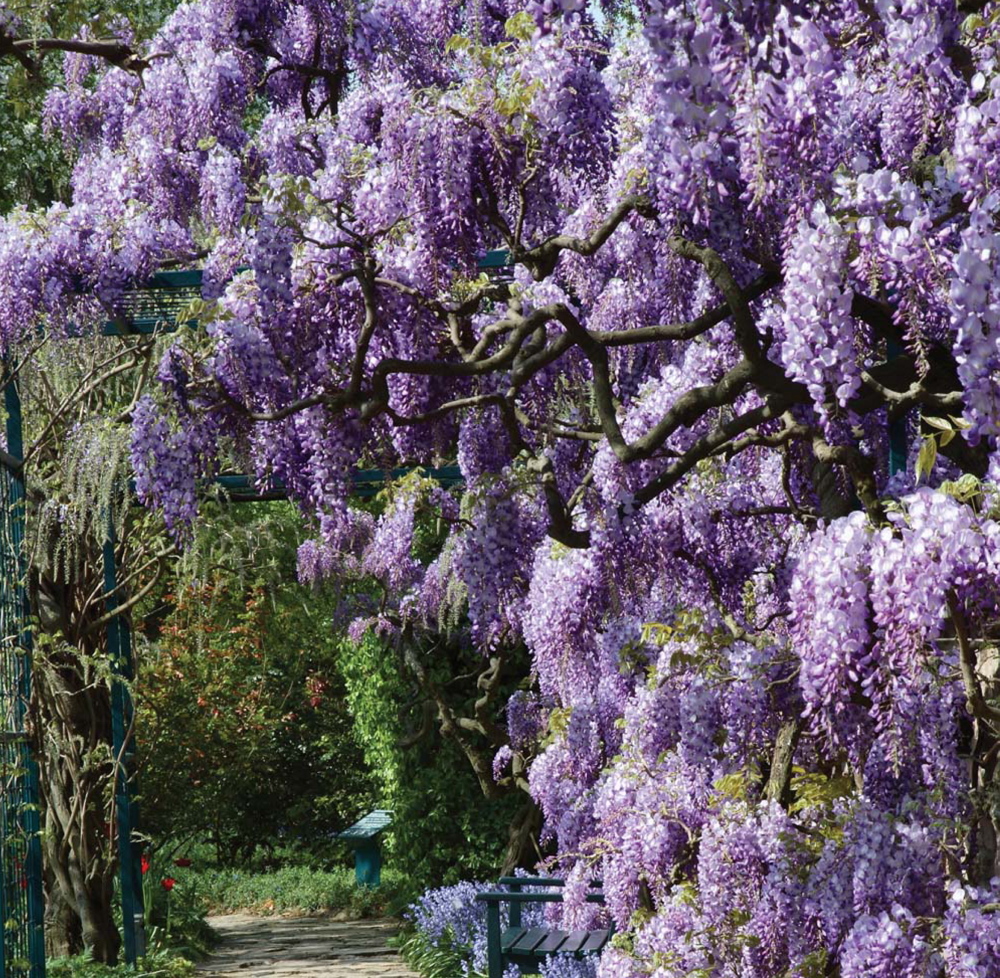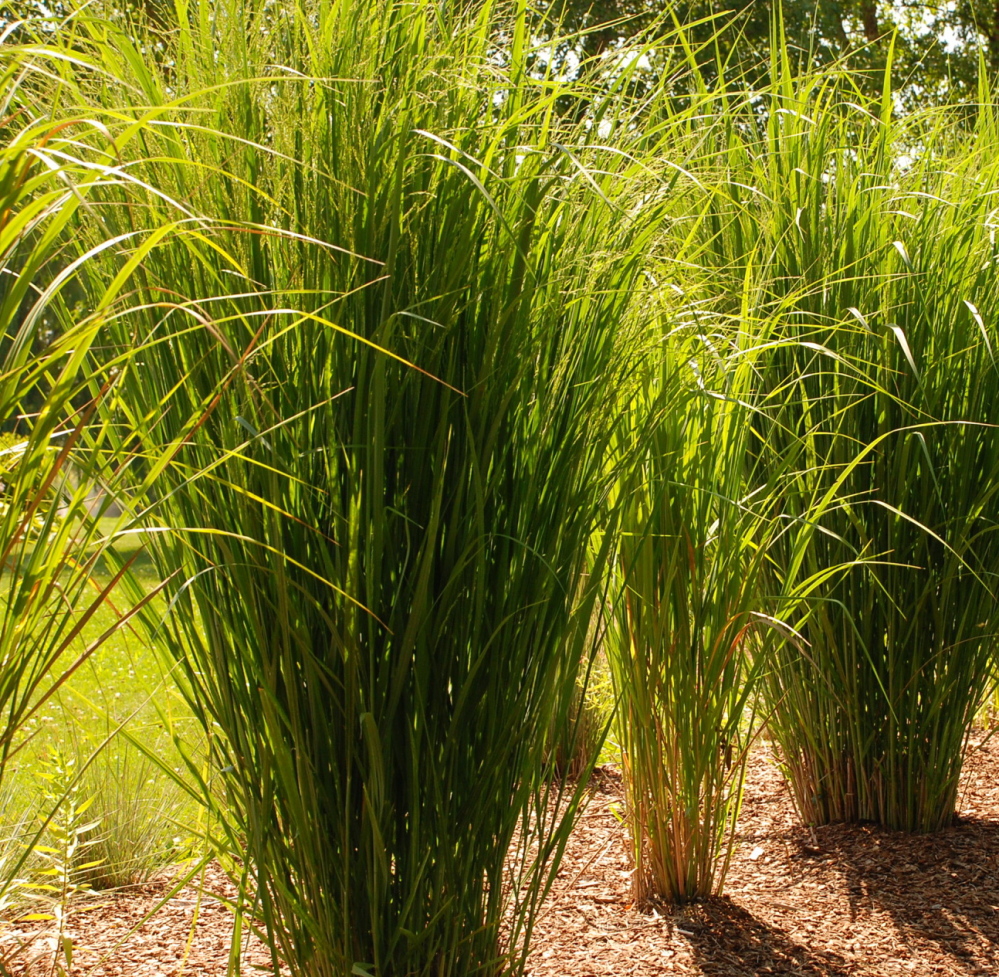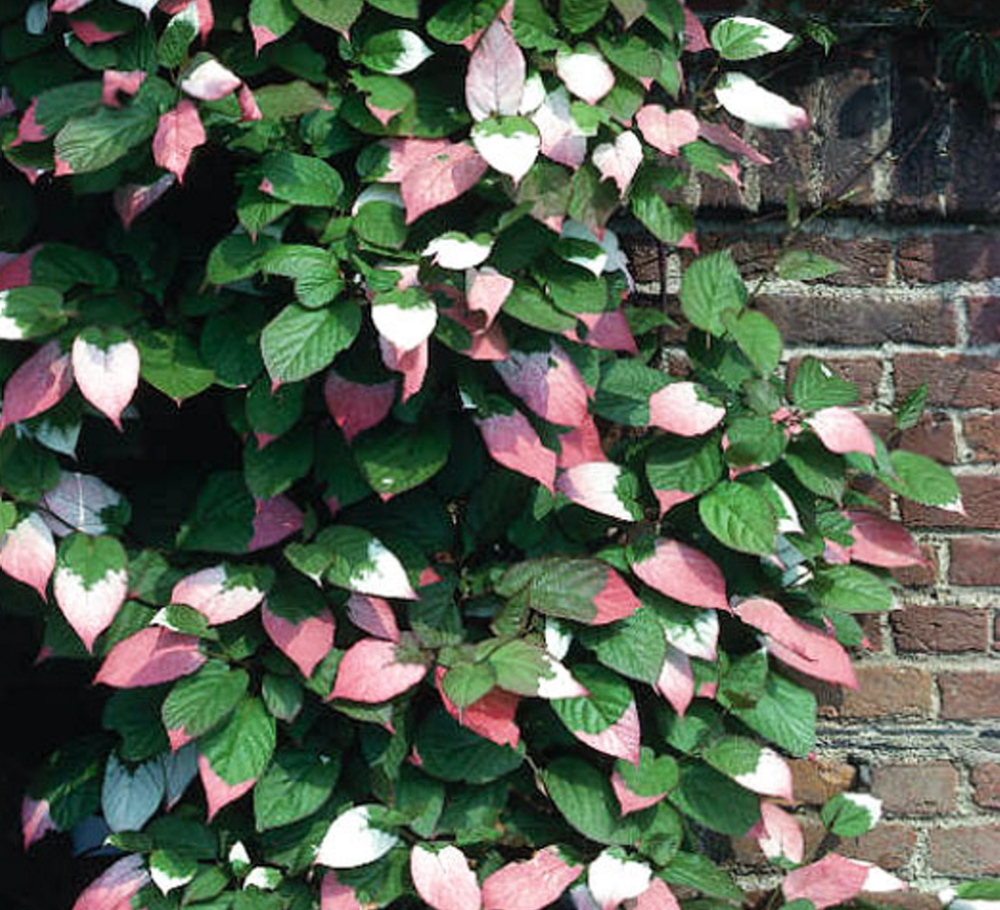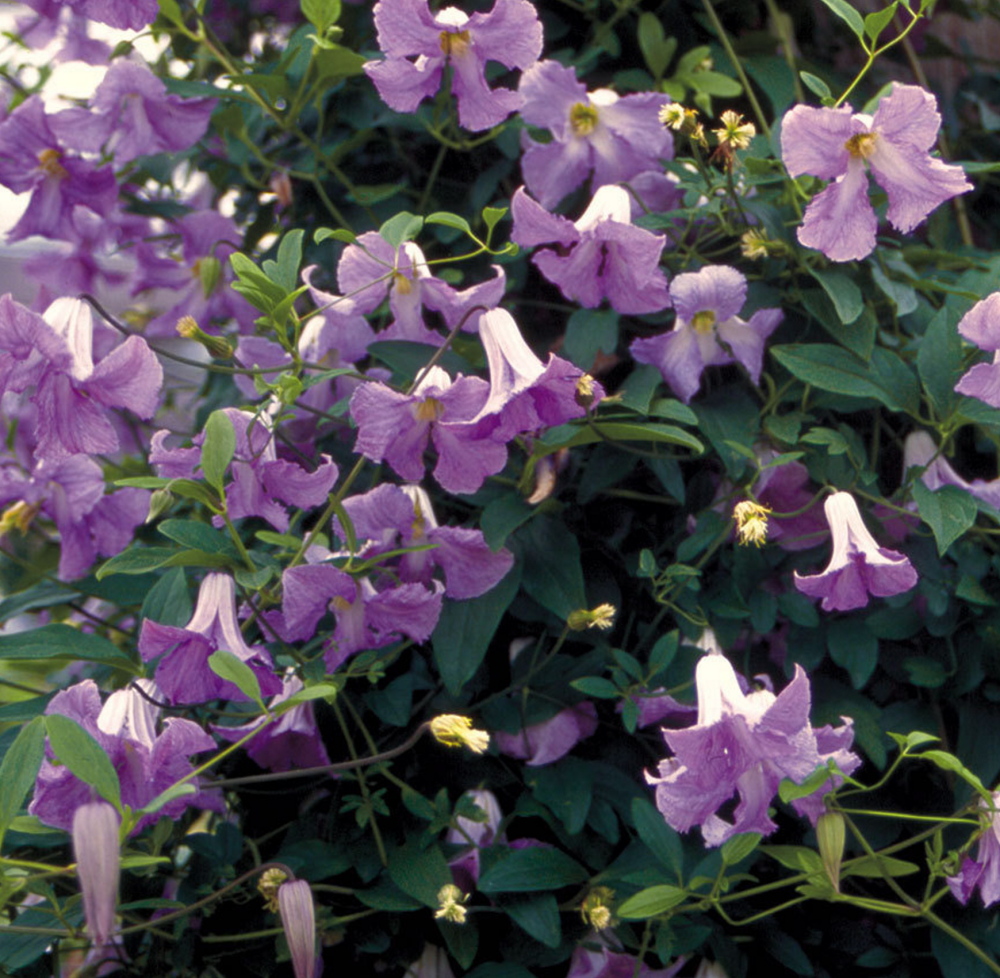Award-winning plants for 2014 include three vines that will grow well in New England, an upright version of an North American native grass, some potentially good tomatoes and flowering plants and one bean.
Organizations that present plant awards all look for different attributes, so a round-up will include something for everyone.
Cary Award winners, selected by Tower Hill Botanical Gardens in Massachusetts, made 2014 “the year of the vine.” The three vines selected are the “Betty Corning” clematis, the hardy kiwi (Actinidia kolomikta) and American wisteria (Wisteria frutescens).
“With the Cary Awards we focus on woodies, which include trees, shrubs, ground covers and vines,” said Joann Vieira, horticulture director at Tower Hill. “For several years we haven’t had a vine selection, in part because there aren’t as many vines that meet the criteria” of having interest in multiple seasons, disease and pest resistance.
Vieira said vines are especially useful now with interest in space-saving plants and living walls because they add height without taking up much space.
The “Betty Corning” clematis has lavender bell-shaped flowers that appear in June and last into September, is resistant to clematis wilt, can climb up trellises with just a little tying or grow through shrubs or along the ground as a ground cover. It should be pruned in winter or early spring, and can be pruned at ground level if you want without inhibiting its blooms.
The kiwi selected is grown for its foliage rather than its fruit, although if you grow a female vine it will produce a bit of edible fruit.
“It grows like a weed,” said Jeff O’Donal, the Maine member of the Cary Award selection committee. “It has gorgeous variegated foliage. It looks like someone drove by and splashed white and pink paint on the leaves.”
In addition to the foliage, Vieira said, it has fragrant white flowers in the spring and peeling cinnamon colored bark in the winter.
The American wisteria is not as well known as its Asian cousin, but it has the advantages of being less aggressive and, because it blooms on the current year’s wood, will rebloom as the season goes along.
The cultivars most likely to be found in nurseries will be the lavender-flowered “Amethyst Falls” or the white “Nivea.”
The Perennial Plant Association plant for 2014 is Panicum virgatum “Northwind.”
Panicums have the common name switchgrass and are native to the U.S. Plains States.
“Northwind” was introduced in the early 1990s by Roy Diblik of Northwind Perennial Farm in Illinois, who noticed that it had a more upright form than most of the other panicums as well as having blue-green leaves.
It also has the advantage of being drought tolerant, while it will tolerate having wet roots, which means it works well in rain gardens, and will work in all types of soil.
All-America Selections honor new plants rather than ones that have stood the test of time. It also selects vegetables as well as flowering plants.
The All-American Selection program for the first time this year named regional winners in addition to national winners. There were no regional winners for the Northeast, so I will list only the national winners.
The two tomatoes are Chef’s Choice Orange, a full-size orange tomato that is disease resistant, and Fantastico, a high-yield grape tomato that is disease resistant and resistant to cracking. Fantastico will likely compete with Jasper, an AAS winner last year from Johnny’s Selected Seeds in Winslow.
The pepper Mama Mia Giallo is a yellow, sweet Italian pepper that has big yields, uniformly shaped fruit and disease resistance.
Mascotte is the first bean to win the prize since 1991 and it will do well in pots and window boxes as well as the garden. It produces long and slender pods that grow above the leaves for easy picking and stay crisp when cooked.
Bedding plant winners include Sparkle White gaura, a perennial that will bloom all season long, but in much of Maine would be treated as an annual because it is hardy only to Zone 6; and Petunia African Sunset, an annual that will bloom prolifically all season long.
While thinking of annuals, the American Horticultural Society reported that visitors at 31 botanical gardens picked Verbena Lanai “Candy Cane” as winner of the American Garden Award for 2014. The plant introduced by Syngenta Flowers produces masses of starry red and white blossoms. Coming in close behind were Zahara “Cherry” zinnia and “Compact Electric Orange” SunPatiens, a type of impatiens that is resistant to impatiens downy mildew.
When you start looking at your garden catalogs after the holidays have gone by, you can check these out.
Tom Atwell has been writing the Maine Gardener column since 2004. He is a freelance writer gardening in Cape Elizabeth and can be contacted at (207) 767-2297 or at:
tomatwell@me.com
Copy the Story LinkSend questions/comments to the editors.






Success. Please wait for the page to reload. If the page does not reload within 5 seconds, please refresh the page.
Enter your email and password to access comments.
Hi, to comment on stories you must . This profile is in addition to your subscription and website login.
Already have a commenting profile? .
Invalid username/password.
Please check your email to confirm and complete your registration.
Only subscribers are eligible to post comments. Please subscribe or login first for digital access. Here’s why.
Use the form below to reset your password. When you've submitted your account email, we will send an email with a reset code.